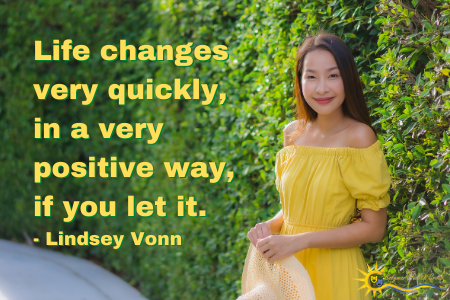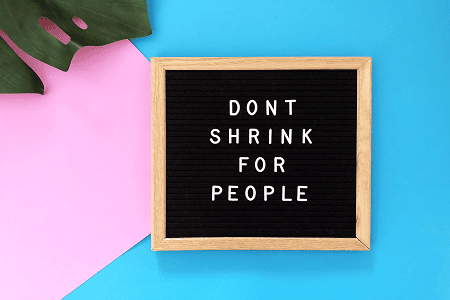
The COVID-19 pandemic has brought about unprecedented changes in our lives. Lockdowns, social distancing, and the fear of a deadly virus have significantly impacted our mental health. As we move into a post-pandemic world, the challenges we face are not limited to physical health but extend to the realm of mental well-being. Navigating post-pandemic anxiety is a common struggle for many, as the prospect of returning to "normal" life can be both exciting and anxiety-inducing. In this article, we'll explore the various dimensions of post-pandemic anxiety and provide strategies for coping with social reintegration and the uncertainties that lie ahead.
Understanding Post-Pandemic Anxiety
- The New Normal
The first challenge in navigating post-pandemic anxiety is the uncertainty surrounding what the "new normal" will look like. After months of lockdowns and isolation, many people have grown accustomed to a quieter, more controlled lifestyle. The thought of returning to crowded places, resuming in-person work, and engaging in social activities can be overwhelming. - Fear of Infection
The fear of contracting the virus or spreading it to vulnerable loved ones still looms large. Even with vaccination efforts, the virus continues to circulate, and the emergence of new variants adds to the uncertainty. This fear can lead to heightened anxiety, especially when faced with situations that involve close contact with others. - Social Anxiety
Social reintegration can be challenging, especially for those who already grappled with social anxiety before the pandemic. The extended period of isolation may have intensified these feelings and made it more difficult to engage in social interactions, both professionally and personally. - Economic Uncertainty
Many have experienced financial instability during the pandemic, with job losses, pay cuts, and business closures becoming commonplace. The economic uncertainty brought on by the pandemic can compound feelings of anxiety and stress as individuals navigate their financial futures.
Strategies for Coping with Post-Pandemic Anxiety
- Self-Care and Stress Management
- Mindfulness Meditation: Mindfulness meditation can help individuals manage anxiety by focusing on the present moment and reducing ruminative thoughts about the past or future.
- Breathing Exercises: Deep breathing exercises, like diaphragmatic breathing, can activate the body's relaxation response and reduce anxiety.
- Physical Activity: Regular exercise has been shown to reduce anxiety and depression. Engaging in physical activity can help manage post-pandemic anxiety and improve overall well-being.
- Sleep Hygiene: Prioritizing sleep is crucial for managing anxiety. Creating a consistent sleep schedule and implementing good sleep hygiene practices can make a significant difference.
- Gradual Exposure
For those experiencing social anxiety, gradual exposure to social situations is a helpful strategy. Start with small, manageable interactions and progressively work your way up to more significant social gatherings. Setting achievable goals and celebrating successes along the way can boost confidence. - Seek Professional Help
Individuals struggling with severe anxiety should not hesitate to seek professional help. Therapists, psychologists, and psychiatrists can provide support, therapeutic techniques, and medication options when necessary. - Communicate and Connect
Open and honest communication with friends and family is essential. Share your feelings and concerns, as they may be experiencing similar anxieties. Support from loved ones can be invaluable during this transition. - Focus on Resilience
Building resilience is a key strategy for navigating post-pandemic anxiety. Cultivate a growth mindset, learn from the challenges you've faced, and use them as opportunities for personal growth. - Set Realistic Expectations
Accept that the post-pandemic world may not resemble the past completely. Setting realistic expectations can help you adapt to the uncertainties and changes that lie ahead. - Financial Planning
Economic uncertainty can be particularly distressing. Develop a financial plan, create an emergency fund, and explore new income streams or job opportunities. Consulting with a financial advisor may provide valuable guidance. - Stay Informed and Adapt
Stay informed about the latest guidance and recommendations from public health authorities. As the situation evolves, be prepared to adapt to changing circumstances, whether it's mask-wearing, vaccination boosters, or other health and safety measures.
Conclusion
Post-pandemic anxiety is a natural response to the unique challenges we face as we reintegrate into society and navigate the uncertainties that lie ahead. While these feelings are normal, they can be managed with the right strategies. Self-care, gradual exposure, professional support, and open communication are all valuable tools for coping with this anxiety.
Remember that you are not alone in this journey. Many others are going through similar experiences and emotions. By focusing on resilience, setting realistic expectations, and staying informed, we can move forward with confidence into a post-pandemic world while maintaining our mental well-being.
#MentalHealth #Anxiety #PostPandemic #SocialReintegration #Uncertainty #Resilience #SelfCare #StressManagement #Mindfulness #ProfessionalHelp #Communication #FinancialPlanning #Adaptability






